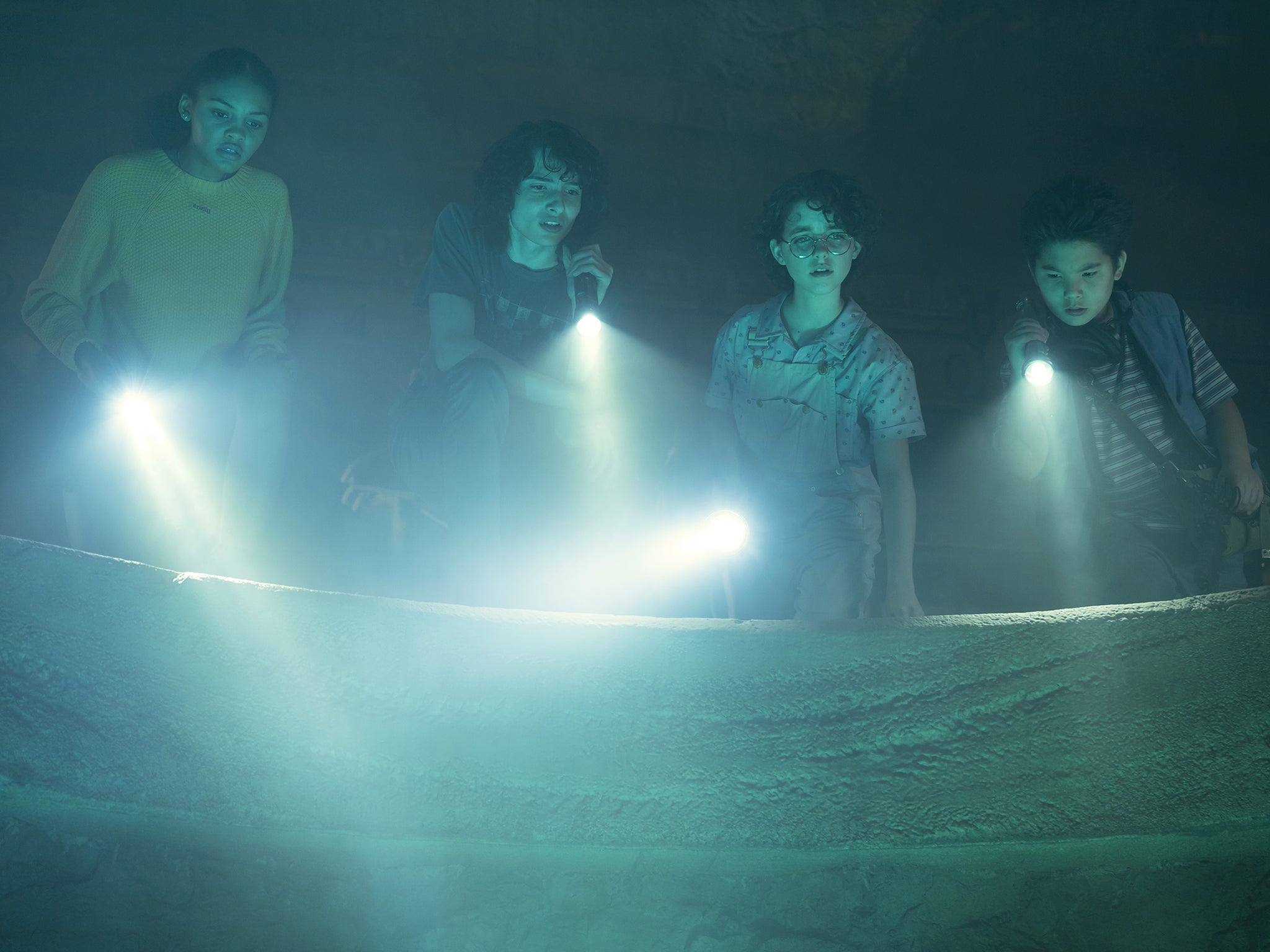Ghostbusters: Afterlife review – A manipulative and ethically dubious nostalgia trip
Dripping in unearned gravitas, this belated sequel turns the original film’s downtrodden dorks into superheroes
Your support helps us to tell the story
From reproductive rights to climate change to Big Tech, The Independent is on the ground when the story is developing. Whether it's investigating the financials of Elon Musk's pro-Trump PAC or producing our latest documentary, 'The A Word', which shines a light on the American women fighting for reproductive rights, we know how important it is to parse out the facts from the messaging.
At such a critical moment in US history, we need reporters on the ground. Your donation allows us to keep sending journalists to speak to both sides of the story.
The Independent is trusted by Americans across the entire political spectrum. And unlike many other quality news outlets, we choose not to lock Americans out of our reporting and analysis with paywalls. We believe quality journalism should be available to everyone, paid for by those who can afford it.
Your support makes all the difference.Dir: Jason Reitman. Starring: Carrie Coon, Finn Wolfhard, Mckenna Grace, Paul Rudd. Cert 12A, 125 minutes
Ghostbusters: Afterlife has made me question what people even liked about the original. Growing up, I understood the 1984 film to be a scrappy though wildly successful comedy about a pack of down-on-their-luck dorks incidentally proving the existence of the astral plane and getting blow jobs from ghosts. It had the loose, anarchic humour of early Saturday Night Live, was only ever serious about the lingo of parapsychology, and was just about family-friendly enough to serve as an entry point for comedy fans. It was the film that first opened the door for young viewers to the likes of The Jerk, Trading Places, and Caddyshack.
But from watching this latest instalment, the fourth in the franchise, you’d think Ghostbusters opened with the title card: “Sing, O muse!”. The new film, which largely ignores the existence of the 1989 sequel, focuses on the next generation, played by Mckenna Grace and Finn Wolfhard. And, for them, the busting of ghosts is a sacred task passed on by their wise and saintly forebears.
The two of them play Phoebe and Trevor, the children of Callie (Carrie Coon), who’s uprooted the family and moved them into the Oklahoman farmhouse of her late father – whose identity is kept secret for no reason at all, since it’s screamingly obvious from the get-go. Soon enough, they start to stumble across old bits of Ghostbusters tech. When they switch on Ecto-1 – really just a pimped-up hearse hidden away in one of the barns – it rumbles like a sports car. When they find the proton packs hiding in the basement, the energy beams they shoot out have enough juice to wreck a small city. And when something strange starts lurking in the neighbourhood, every new discovery suddenly becomes imbued with lore and mysticism. The Ghostbusters can’t just be dorks anymore – Hollywood has made them superheroes.
The word of the day here is “legacy”. And just as the title of “ghostbuster” is passed between the generations, so has the job of Ghostbusters director. Jason Reitman has positioned his film as a tribute to the work of his father, Ivan, on the 1984 film. He’s also remarked that his sequel “hands back” the franchise to its fans. To that, I say: which fans? The fans, like me, who simply enjoy Ghostbusters for what it is? Or the fans who’ve entirely subsumed Ghostbusters into some wider mourning for lost childhoods and a time when they felt the most important and powerful of all?
There’s something slickly manipulative about appealing to the latter – especially the ways in which Reitman and his screenwriting partner for the film, Gil Kenan, seem to present the internal Ghostbusters mythology as niche and unappreciated. Despite the team having conclusively proven the existence of ghosts some 40-odd years ago, everyone but the most dedicated of nerds (Paul Rudd’s seismologist-turned-teacher, Gary Grooberson) seems to have wiped the memory from their brain. And by presenting one of the most popular films of all time as a cultural underdog, Afterlife helps prop up the bizarre sense of franchise ownership that fuelled the worst of the misogyny directed at Paul Feig’s 2016 reboot. At least his female-fronted Ghostbusters had enough sense of clarity to treat itself as an SNL-adjacent comedy.
The argument, of course, will be that the Ghostbusters fandom couldn’t possibly have an issue with women in their movies because the lead in Afterlife is a young girl. But Phoebe, despite the enthusiasm Grace brings to the role, isn’t really her own person. With rounded glasses, stilted mannerisms and a hyper-fixation on science, she is but a pint-sized clone of her grandfather – has that given away who I’m talking about yet?

Ghostbusters: Afterlife is simply the things you already knew and liked, but repeated with unearned gravitas. New York City has been traded for a golden-hued, Spielbergian vision of rural America, populated by cornfields and roller skate diners. You half expect Wolfhard to jump on a bicycle and ride off to join his castmates from Stranger Things – or should that be his castmates from It?
Granted, when the demon dogs from the first film appear, they’re largely rendered through practical effects, and Rob Simonsen’s score delicately reintroduces Elmer Bernstein’s original themes. Reitman is at least thorough in his references. But there’s a moment in Ghostbusters: Afterlife – one presented as a heartfelt tribute to those who made the first film possible – where it officially crosses a line into the ethically dubious. It can’t possibly have been worth it. Not when this has all just been nostalgia for nostalgia’s sake.




Join our commenting forum
Join thought-provoking conversations, follow other Independent readers and see their replies
Comments